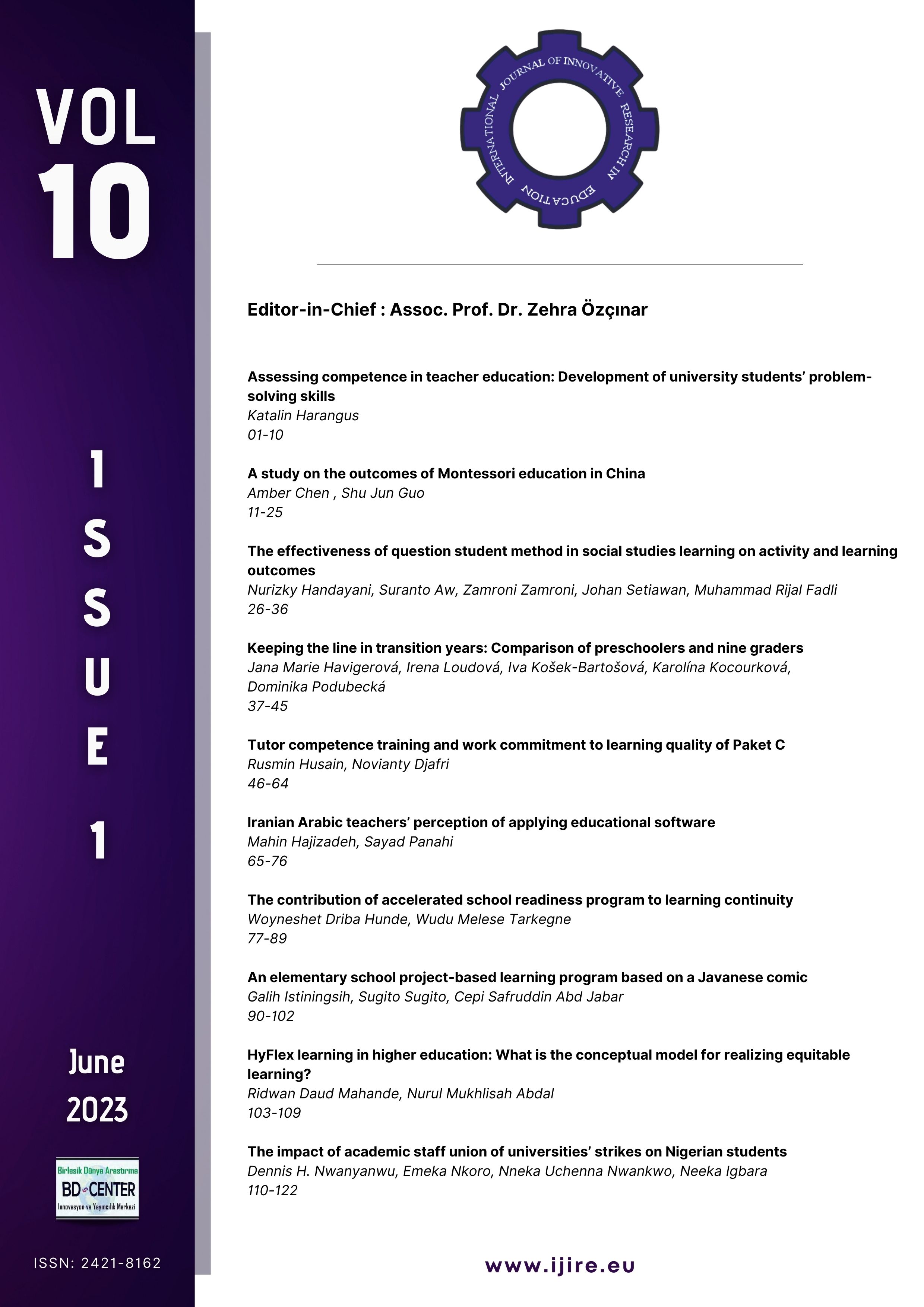A study on the outcomes of Montessori education in China
Main Article Content
Abstract
Montessori education has been acclaimed as one of the best methods of training students. Despite its widespread, little is known about Montessori education and its effects in mainland China. This research aims to spur more research on Montessori education outcomes in China. A quasi-experimental method was applied in this study, to compare the executive function (EF) development of children who had attended Montessori preschool to their non-Montessori peers. The study used a behavior rating inventory of executive function, second edition (BRIEF2) Parent Form to compare parents' observations of their child's executive functions (EF). Parents of Chinese elementary-aged children (6-8 years old) at the time of the study of both Montessori and non-Montessori preschool backgrounds participated in the survey. According to the results, children of Montessori preschool backgrounds had some statistically significant better-scored EF indexes than their non-Montessori peers. While the remaining indexes were not statistically significant, mean scores were still better for children who had attended Montessori preschool overall.
Keywords: Educational software; executive function; Montessori; perceptions; teacher.
Downloads
Article Details

This work is licensed under a Creative Commons Attribution 4.0 International License.
The International Journal of Innovative Research in Education is an Open Access Journal. All articles can be downloaded free of charge. Articles published in the Journal are Open-Access articles distributed under CC-BY license [Attribution 4.0 International (CC BY 4.0)].
Birlesik Dunya Yenilik Arastirma ve Yayincilik Merkezi (BD-Center) is a gold open access publisher. At the point of publication, all articles from our portfolio of journals are immediately and permanently accessible online free of charge. BD-Center articles are published under the CC-BY license [Attribution 4.0 International (CC BY 4.0)], which permits unrestricted use, distribution, and reproduction in any medium, provided the original authors and the source are credited.
